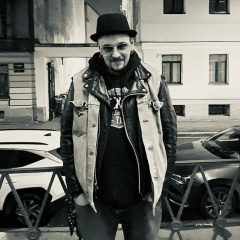Философы эпохи Просвещения не боролись с абсолютной монархией как с идеей. Они боролись за то, чтобы монарх (и все прочие) был связан общественным мнением по части того, что хорошо и что плохо. А вырабатывали такое мнение они — пишущее, занимающееся науками и дискутирующее сословие. Некоторые боролись за роль законодателей морали с церковью, но последняя уже не очень-то и сопротивлялась. Описываемая ситуация — не идеал века, а его реальность. Это так было.
Кстати, нам эта реальность знакома по концепции существования советской интеллигенции. Да, она пыталась воспроизвести у нас ситуацию XVIII века — с известным результатом. Кто-то из таковой не принимал коммунистическую идеологию открыто, но большинство скорее старалось объяснить всем, и власти в том числе, какой должна быть "настоящая" коммунистическая идеология — с человеческим, понятно, лицом. И просвещать по этой части народ.
Внутренний трепет личностей из правящей верхушки перед сословием людей знаний и книги дошел до наших дней — зачем иначе нужно было писать диссертации по заведенным еще в СССР канонам (и не надо говорить, что это плагиат, писали так, как положено, нудно, с цитированием и заимствованиями). Ведь научная степень непосредственных благ сегодня почти не несет. Но почтение к ней — оттуда, из "золотого" века. Это то же самое, как Казанова описывает свои встречи с Вольтером, стенографически отчитывается перед потомками, как великий человек — явно из вежливости — обещает выписать его, Казановы, сочинения, заказать их перевод...
Есть такая школа мысли — что люди Просвещения доигрались до французской и прочих революций. Это жестокое и несправедливое обвинение, они как минимум совсем не того хотели. И, кстати, Казанова в своей книге очень жестко проходится по французским революционерам — то совсем не его люди. Собственно, гневная реакция людей Просвещения на революционное издевательство над их идеями и породила идеологию, которую сегодня называют консерватизмом, и она ожила, набирает силу как раз сейчас.
Но Казанова не знал, что вдобавок ко всему он еще и консерватор...
Кстати, нам эта реальность знакома по концепции существования советской интеллигенции. Да, она пыталась воспроизвести у нас ситуацию XVIII века — с известным результатом. Кто-то из таковой не принимал коммунистическую идеологию открыто, но большинство скорее старалось объяснить всем, и власти в том числе, какой должна быть "настоящая" коммунистическая идеология — с человеческим, понятно, лицом. И просвещать по этой части народ.
Внутренний трепет личностей из правящей верхушки перед сословием людей знаний и книги дошел до наших дней — зачем иначе нужно было писать диссертации по заведенным еще в СССР канонам (и не надо говорить, что это плагиат, писали так, как положено, нудно, с цитированием и заимствованиями). Ведь научная степень непосредственных благ сегодня почти не несет. Но почтение к ней — оттуда, из "золотого" века. Это то же самое, как Казанова описывает свои встречи с Вольтером, стенографически отчитывается перед потомками, как великий человек — явно из вежливости — обещает выписать его, Казановы, сочинения, заказать их перевод...
Есть такая школа мысли — что люди Просвещения доигрались до французской и прочих революций. Это жестокое и несправедливое обвинение, они как минимум совсем не того хотели. И, кстати, Казанова в своей книге очень жестко проходится по французским революционерам — то совсем не его люди. Собственно, гневная реакция людей Просвещения на революционное издевательство над их идеями и породила идеологию, которую сегодня называют консерватизмом, и она ожила, набирает силу как раз сейчас.
Но Казанова не знал, что вдобавок ко всему он еще и консерватор...
Enlightenment philosophers did not fight absolute monarchy as an idea. They fought to keep the monarch (and everyone else) bound by public opinion about what is good and what is bad. And this opinion was developed by them - the writing, engaged in science and debating class. Some fought for the role of moral legislators with the church, but the latter no longer really resisted. The described situation is not the ideal of the century, but its reality. It was so.
By the way, we are familiar with this reality from the concept of the existence of the Soviet intelligentsia. Yes, she tried to reproduce the situation of the 18th century in our country - with a well-known result. Some of them did not openly accept the communist ideology, but the majority rather tried to explain to everyone, including the authorities, what a "real" communist ideology should be - with a human, of course, face. And educate the people in this respect.
The inner trepidation of personalities from the ruling elite in front of the class of people of knowledge and the book has reached our days - why else would it have been necessary to write dissertations according to the canons established in the USSR (and it is not necessary to say that this is plagiarism, they wrote the way it should be, tediously, with quotations and borrowings). After all, the scientific degree of direct benefits today almost does not bear. But reverence for her - from there, from the "golden" age. This is the same as Casanova describes his meetings with Voltaire, reports in shorthand to his descendants, as a great man - clearly out of politeness - promises to write out his, Casanova's, compositions, order their translation ...
There is such a school of thought - that the people of the Enlightenment played out before the French and other revolutions. This is a cruel and unfair accusation, at least they didn't want it at all. And, by the way, Casanova in her book is very harsh about the French revolutionaries - they are not his people at all. Actually, the angry reaction of the people of the Enlightenment to the revolutionary mockery of their ideas gave rise to the ideology, which today is called conservatism, and it has revived, is gaining strength right now.
But Casanova did not know that, on top of that, he was also a conservative ...
By the way, we are familiar with this reality from the concept of the existence of the Soviet intelligentsia. Yes, she tried to reproduce the situation of the 18th century in our country - with a well-known result. Some of them did not openly accept the communist ideology, but the majority rather tried to explain to everyone, including the authorities, what a "real" communist ideology should be - with a human, of course, face. And educate the people in this respect.
The inner trepidation of personalities from the ruling elite in front of the class of people of knowledge and the book has reached our days - why else would it have been necessary to write dissertations according to the canons established in the USSR (and it is not necessary to say that this is plagiarism, they wrote the way it should be, tediously, with quotations and borrowings). After all, the scientific degree of direct benefits today almost does not bear. But reverence for her - from there, from the "golden" age. This is the same as Casanova describes his meetings with Voltaire, reports in shorthand to his descendants, as a great man - clearly out of politeness - promises to write out his, Casanova's, compositions, order their translation ...
There is such a school of thought - that the people of the Enlightenment played out before the French and other revolutions. This is a cruel and unfair accusation, at least they didn't want it at all. And, by the way, Casanova in her book is very harsh about the French revolutionaries - they are not his people at all. Actually, the angry reaction of the people of the Enlightenment to the revolutionary mockery of their ideas gave rise to the ideology, which today is called conservatism, and it has revived, is gaining strength right now.
But Casanova did not know that, on top of that, he was also a conservative ...
У записи 4 лайков,
1 репостов,
1180 просмотров.
1 репостов,
1180 просмотров.
Эту запись оставил(а) на своей стене Максим Козырев

























